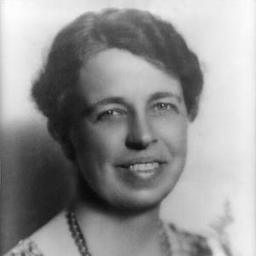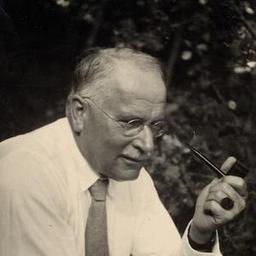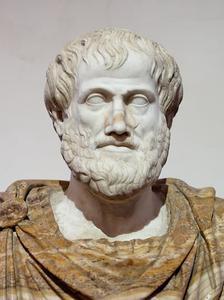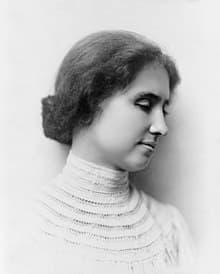
Benedict Evans
Benedict Evans is an independent technology analyst based in London. He writes and speaks about strategic and operating issues around consumer technology and ecosystems. Evans is known for his newsletter, essays, and presentations that focus on what matters in tech. He has a large following and is considered a thought leader in the tech industry. Evans has also worked as the head of the innovation lab at a large company.
157 Quotes
"Every time we go through a wave of automation, whole classes of jobs go away, but new classes of jobs get created. There is frictional pain and dislocation in that process, and sometimes the new jobs go to different people in different places, but over time the total number of jobs doesn’t go down, and we have all become more prosperous."
— Benedict Evans
AI and the automation of work"no-one in 1800 would have predicted that in 1900 a million Americans would work on ‘railways’ and no-one in 1900 would have predicted ‘video post-production’ or ‘software engineer’ as employment categories."
— Benedict Evans
AI and the automation of work"The Lump of Labour fallacy is the misconception that there is a fixed amount of work to be done, and that if some work is taken by a machine then there will be less work for people."
— Benedict Evans
AI and the automation of work"what’s really been happening for the last 200 years of automation is that we’ve been moving up the scale of human capability."
— Benedict Evans
AI and the automation of work"Jevons: if we make steam engines more efficient, then they will be cheaper to run, and we will use more of them and use them for new and different things, and so we will use more coal. Innovation can connect to price elasticity."
— Benedict Evans
AI and the automation of work"we make the new tool fit the old way of working, but over time, we change how we work to fit the tool."
— Benedict Evans
AI and the automation of work"There’s a huge difference between an amazing demo of a transformative technology and something that a big complicated company holding other people’s business can use."
— Benedict Evans
AI and the automation of work"One of the most basic challenges in building an enterprise software startup is that startups run on an 18 month funding cycle and a lot of enterprises run on an 18 month decision cycle."
— Benedict Evans
AI and the automation of work"Yahoo tried paying people to catalogue the entire web one site at a time, and that was unscalable. Google, on one side, is based on the patterns of aggregate human behaviour of the web, and on the other side it gives you ten results and makes you pick one - manual curation by billions of users. The index is made by machine, but the corpus it indexes is made by people and the results are chosen by people."
— Benedict Evans
ChatGPT and the Imagenet moment"In much the same way, generative networks, so far, rely on one side on patterns in things that people already created, and on the other on people having new ideas to type into the prompt and picking the ones that are good. So, where do you put the people, at what point of leverage, and in what domains?"
— Benedict Evans
ChatGPT and the Imagenet moment"what are domains that are deep enough that machines can find or create things that people could never see, but narrow enough that we can tell a machine what we want?"
— Benedict Evans
ChatGPT and the Imagenet moment"ML gives you not infinite interns but one intern with super-human speed and memory - one intern who can listen to a billion calls and say ‘you know, after 300m calls, I noticed a pattern you didn’t know about…’ That might be another way to look at a generative network - it’s a ten-year-old that’s read every book in the library and can repeat stuff back to you, but a little garbled"
— Benedict Evans
ChatGPT and the Imagenet moment"Dunbar’s number (a rule of thumb that implies that you probably do know several hundred people well enough to friend them on Facebook) and ‘Zuckerberg’s law’ (the supposed tendency to share more and more on social media over time). Combine these two and you get overload."
— Benedict Evans
The death of the newsfeed"the asymmetric feed makes posting at that kind of frequency normal instead of rude. Since you’re posting it to ‘your’ feed instead of sending it explicitly to someone, it’s OK to post lots and to post less important things."
— Benedict Evans
The death of the newsfeed"That, in turn, takes us to the tragedy of the commons - we’re ‘supposed’ to post stuff, but by posting stuff, we overload each other’s feeds."
— Benedict Evans
The death of the newsfeed"People’s desires change, and they get bored of things, so Facebook has to keep changing the mix to try to reflect that"
— Benedict Evans
The death of the newsfeed"Google shows me exactly what I told it I wanted, it’s succeeded, even if I ‘shouldn’t’ have searched for that. Facebook has no such direct signal. There are things it ‘shouldn’t’ show me, even if my uncle did share them. But what are those things, and who should decide, and what does the weighting look like?"
— Benedict Evans
The death of the newsfeed"if the feed is focused on ‘what do I want to see?’, then it cannot be focused on ‘what do my friends want (or need) me to see?’"
— Benedict Evans
The death of the newsfeed"we swing from one kind of expression to another and back again, and we might be swinging away from the feed."
— Benedict Evans
The death of the newsfeed"""However vast any person’s basic reading may be, there still remain an enormous number of fundamental works that he has not read"" Italo Calvino"
— Benedict Evans
Search, discovery and marketing"Yahoo actually worked pretty well when there were 20,000 websites, just as a book shop with 20,000 titles works pretty well. But the Yahoo directory peaked at 3.2m sites and at that that point it definitely didn't work - you can't possibly scroll past that many entries"
— Benedict Evans
Search, discovery and marketing"you can browse 20,000 apps but not a million. Hierarchical directories don't scale."
— Benedict Evans
Search, discovery and marketing"Google is very good at giving you what you're looking for, but no good at all at telling you what you want to find, let alone things you didn't know you wanted."
— Benedict Evans
Search, discovery and marketing"the most interesting businesses are often things you'd never given any thought to."
— Benedict Evans
Search, discovery and marketing"‘Yahoo’s directory didn’t scale’ misses the point. What we’re really seeing is a trade-off between two problems."
— Benedict Evans
Search, discovery and marketing"You can have a list, solving discovery and recommendation, but once the domain gets big then your list is either unusably long or partial and incomplete (and perhaps uneconomic to maintain). Or you can have a searchable index of everything but you’re on your own working out what’s good and finding things you didn't know to search for."
— Benedict Evans
Search, discovery and marketing"do you filter crowdsourcing down enough to get quality, or scale up editorial to get coverage, or you give up on coverage and do a purely curated product?"
— Benedict Evans
Search, discovery and marketing"Amazon, after 20 years of ruthless execution, still only has under a third of the entire print books market. Most people buy most of their books in physical retail, because book shops are not just relatively inefficient end-points to a physical logistics network, but also filters and recommendation platforms."
— Benedict Evans
Search, discovery and marketing"perhaps, a split might be: There is giving you what you already know you want (Amazon, Google), There is working out what you want (Amazon and Google's aspiration), And then there is suggesting what you might like (Heywood Hill)."
— Benedict Evans
Search, discovery and marketing"It's funny how many people keep trying to rebuild Yahoo - it didn't work out that well for Yahoo itself"
— Benedict Evans
Search, discovery and marketing"""We've made it to where we are with absolutely no sales or marketing spend"" often does not send the signal that founders hope it will send. Marc Andreessen"
— Benedict Evans
Search, discovery and marketing"if PageRank really Worked, SEM wouldn't exist - if the links were always the right answer then no-one would click on search advertising."
— Benedict Evans
Search, discovery and marketing"People trying to unbundle Craigslist do so with modern UX, but Yelp is a modern company with modern UX, and the people unbundling it, mostly, use constraint."
— Benedict Evans
Lists are the new search"the strategy for a lot of online fashion and luxury good offerings is, again, constraint - curation, or, one could say, a list."
— Benedict Evans
Lists are the new search"Showing every SKU, of course, is exactly the Amazon approach - 'the everything store', and it works well for some categories, and especially when you know exactly what you want."
— Benedict Evans
Lists are the new search"The problem with using a list instead of a searchable database is how you get to scale"
— Benedict Evans
Lists are the new search"Yahoo's hierarchical directory (a list of lists) got to 3.2m entries before collapsing under its own weight - it was too big to be browsed, and reached the point that only search made sense (and Google did better search)."
— Benedict Evans
Lists are the new search"All curation grows until it requires search. All search grows until it requires curation."
— Benedict Evans
Lists are the new search"Email newsletters are older than the web, and paid newsletters are older than the internet."
— Benedict Evans
Notes on newsletters"In the past, there were always two constraints around the one-writer business. First, meaningful ad revenue on the web needs more traffic and therefore generally more writing than any single (normal) person can produce."
— Benedict Evans
Notes on newsletters"Second, no-one ever really managed to make mass-market paid blogs a generalisable model either"
— Benedict Evans
Notes on newsletters"Somehow, though, it’s easier to pay for an email than a web page. Perhaps an email is a piece of tangible value - something that you’re given every week, that you can keep, whereas a blog post disappears in the firehose, and you never remember to visit, and can’t be bothered to log in (and RSS died, and Facebook is a lottery)."
— Benedict Evans
Notes on newsletters"Making it paid was and is a lot harder - you need to plug together a website, a membership management system, an email platform and a payment processor, with a bunch of integrations and ‘code’."
— Benedict Evans
Notes on newsletters"That’s the first problem Substack solved - it made publishing easy and charging easy. You pay 10% (plus Stripe’s 3-6% - the invisible percentage on half the cool new internet stuff today) and Substack handles the rest"
— Benedict Evans
Notes on newsletters"Mailchimp, Wordpress, Memberful and Squarespace don’t give you readers - they’re tools, and they don’t have leaderboards. But Substack fits Chris Dixon’s theory of ‘come for the tool and stay for the network’, or might do - it’s a user-facing brand, and has real-estate to drive recommendations and discovery, if it can work out how it wants to do that."
— Benedict Evans
Notes on newsletters"In every new, empty channel, the first people to offer something good are easy to find, and can get rich. Once the channel fills up, the dynamics change."
— Benedict Evans
Notes on newsletters"'what happens when there is more stuff on your platform than anyone can look at?' is an essential, existential question. It can define the whole of what your product really means. What happens when email fills up - where does Substack's own reader fit in?"
— Benedict Evans
Notes on newsletters"Would it be a network or a tool? Could I take my list and leave? Are you paying Substack for a tool, or is Substack paying you for your content - is the take-rate 90% or 10%?"
— Benedict Evans
Notes on newsletters"You can own your content, but that’s trivial - it’s the network that matters."
— Benedict Evans
Notes on newsletters"The most exciting themes in technology today are transformative visions for 2025 or 2030: crypto, web3, VR, metaverse"
— Benedict Evans
Presentations"Pretty much everyone in tech agrees that generative AI, Large Language Models and ChatGPT are a generational change in what we can do with software, and in what we can automate with software."
— Benedict Evans
AI and the automation of work"Part of the founding legend of Dropbox is that Drew Houston told people what he wanted to do, and everyone said ‘there are hundreds of these already’ and he replied ‘yes, but which one do you use?’"
— Benedict Evans
What comes after Zoom?"The first is that the product drifted for a long time, and the quality of the user experience declined."
— Benedict Evans
What comes after Zoom?"Whether you buy it from Twilio or anyone else, saying ‘our app has free computer voice’ is meaningless - what matters is how you wrap it. Why do you have voice?"
— Benedict Evans
What comes after Zoom?"Clubhouse is built on ideas about psychology and behaviour, not VOIP, and it’s not trying to win ‘voice’."
— Benedict Evans
What comes after Zoom?"There will be video in everything, just as there is voice in everything, and there will be a great deal of proliferation into industry verticals on one hand and into unbundling pieces of the tech stack on the other."
— Benedict Evans
What comes after Zoom?"An important part of this is that there seem to be few real network effects in a video call per se."
— Benedict Evans
What comes after Zoom?"Indeed, the calendar is often the aggregation layer - you don’t need to know what service the next call uses, just when it is."
— Benedict Evans
What comes after Zoom?"Incidentally, one of the ways that this all feels very 1.0 is the rather artificial distinction between calls that are based on a ‘room’, where the addressing system is a URL and anyone can join without an account, and calls that are based on ‘people’, where everyone joining needs their own address, whether it’s a phone number, an account or something else."
— Benedict Evans
What comes after Zoom?"Google has both Meet (URLs) and Duo (people) - Apple’s FaceTime is only people (no URLs)."
— Benedict Evans
What comes after Zoom?"I’ve compared Zoom with Dropbox and Skype, but another useful comparison is with photo sharing."
— Benedict Evans
What comes after Zoom?"There have always been hundreds of things that did this, but we saw a succession of companies that worked out something new around user experience and psychology that took them beyond ‘photos’ to some deeper insight"
— Benedict Evans
What comes after Zoom?"Snap asked a bunch of weird questions that no-one had really asked before."
— Benedict Evans
What comes after Zoom?"Why are you saving your messages - isn’t that like saving all your phone calls?"
— Benedict Evans
What comes after Zoom?"What is the underlying social purpose?’ You’re not really sending someone a sheet of pixels - you’re communicating."
— Benedict Evans
What comes after Zoom?"Zoom has done a good job of asking why it was hard to get into a call, but it hasn’t asked why you’re in the call in the first place."
— Benedict Evans
What comes after Zoom?"And so if Zoom is the Dropbox or Skype of video, we are waiting for the Snap, Clubhouse and Yo."
— Benedict Evans
What comes after Zoom?"I was reminded of this recently by the fact that, according to Facebook, its average user is eligible to see at least 1,500 items per day in their newsfeed."
— Benedict Evans
The death of the newsfeed"This is a combination of two factors - Dunbar’s number (a rule of thumb that implies that you probably do know several hundred people well enough to friend them on Facebook) and ‘Zuckerberg’s law’ (the supposed tendency to share more and more on social media over time)."
— Benedict Evans
The death of the newsfeed"sharing something onto your own feed is not the same as sending it to any particular person."
— Benedict Evans
The death of the newsfeed"Since you’re posting it to ‘your’ feed instead of sending it explicitly to someone, it’s OK to post lots and to post less important things."
— Benedict Evans
The death of the newsfeed"we’re ‘supposed’ to post stuff, but by posting stuff, we overload each other’s feeds."
— Benedict Evans
The death of the newsfeed"It’s not so much chronological in any useful sense as a random sample, where the randomiser is simply whatever time you yourself happen to open the app."
— Benedict Evans
The death of the newsfeed"This is the logic that led Facebook inexorably to the ‘algorithmic feed’, which is really just tech jargon for saying that instead of this random (i.e. 'time-based') sample of what’s been posted, the platform tries to work out which people you would most like to see things from, and what kinds of things you would most like to see."
— Benedict Evans
The death of the newsfeed"So, instead of a purely random sample, you get a sample based on what you might actually want to see."
— Benedict Evans
The death of the newsfeed"First, getting that sample ‘right’ is very hard, and beset by all sorts of conceptual challenges."
— Benedict Evans
The death of the newsfeed"But second, even if it’s a sucessful sample, it’s still a sample."
— Benedict Evans
The death of the newsfeed"People’s desires change, and they get bored of things, so Facebook has to keep changing the mix to try to reflect that, and this has made it an unreliable partner for everyone from Zynga to newspapers."
— Benedict Evans
The death of the newsfeed"Facebook has to make subjective judgements about what it seems that people want, and about what metrics seem to capture that, and none of this is static or even in in principle perfectible."
— Benedict Evans
The death of the newsfeed"It can offer complex controls and filters to fiddle with, but like Facebook it has to get things right without such controls because most people won’t ever touch them."
— Benedict Evans
The death of the newsfeed"And so if Google shows me exactly what I told it I wanted, it’s succeeded, even if I ‘shouldn’t’ have searched for that."
— Benedict Evans
The death of the newsfeed"One basic problem here is that if the feed is focused on ‘what do I want to see?’, then it cannot be focused on ‘what do my friends want (or need) me to see?’"
— Benedict Evans
The death of the newsfeed"The social dynamics of a 1:1 chat work much more strongly against overload, and even if one person does overshare they're in a separate box, that you can mute if you like."
— Benedict Evans
The death of the newsfeed"by bundling what you want to share into one unit instead of many separate items, even if you do then still share that to many people any feed is more manageable."
— Benedict Evans
The death of the newsfeed"that though you still share things asymmetrically, there shouldn’t be an algorithm between you and your friends."
— Benedict Evans
The death of the newsfeed"You put the structure into the content instead of the display of the content."
— Benedict Evans
The death of the newsfeed"The catch is that though these systems look like they reduce sharing overload, you really want group chats."
— Benedict Evans
The death of the newsfeed"But sharing links inside Stories isn't the same, today, and a link you share in a WhatsApp or iMessage group with 5 friends will only be seen by them, and Facebook has no lever to pull to make this more or less visible."
— Benedict Evans
The death of the newsfeed"On the other hand, the 'WhatsApp forward' can take such a link and send it viral across a country, and where Facebook can ultimately kill a link or an entire source across the whole site if it really wants to, it's very different for a P2P messaging app to make that call"
— Benedict Evans
The death of the newsfeed"That is, the plea from many media companies to 'up-rank' their posts in the newsfeed - to make people eat their greens - and to kill 'fake news' links is at least theoretically possible on Facebook."
— Benedict Evans
The death of the newsfeed"Erasmus is said to have been the last person in Europe to have read everything. He lived just at the point that printing took off, and so it was in his lifetime that it ceased actually to be possible to have read everything."
— Benedict Evans
Search, discovery and marketing"Paradoxically, the internet makes it possible to get anything you've ever heard of but also makes it definitively impossible to have heard of everything."
— Benedict Evans
Search, discovery and marketing"The first attempt online was Yahoo's directory - an editorial home-page and a directory of every single website, organized by category."
— Benedict Evans
Search, discovery and marketing"the Yahoo directory peaked at 3.2m sites and at that that point it definitely didn't work"
— Benedict Evans
Search, discovery and marketing"PageRank uses the signal of links between pages - the ability to link of itself is only half the picture."
— Benedict Evans
Search, discovery and marketing"This is one reason mobile messaging apps are so hot - because they might become acquisition and discovery channels."
— Benedict Evans
Search, discovery and marketing"Like Amazon, it's essentially a passive product. It relies on waiting for you to find out what you want somewhere else, in some other way, and then it gives it to you."
— Benedict Evans
Search, discovery and marketing"So Google moved the problem from 'I want to find this and can't' to 'yes, but what do I want to find?'"
— Benedict Evans
Search, discovery and marketing"And that's just for problems you know you have - the most interesting businesses are often things you'd never given any thought to."
— Benedict Evans
Search, discovery and marketing"But where people unbundling Craigslist generally try to peel off a category and deliver a modern experience, the people going after restaurant listings are often doing so with constraint."
— Benedict Evans
Search, discovery and marketing"That is, instead of giving you every single restaurant that’s within 2 miles and that lots of people liked, they give you 10 restaurants."
— Benedict Evans
Search, discovery and marketing"People are attacking crowdsourced universal scale with constraint, curation and personal preference."
— Benedict Evans
Search, discovery and marketing"What we’re really seeing is a trade-off between two problems."
— Benedict Evans
Search, discovery and marketing"You can have a list, solving discovery and recommendation, but once the domain gets big then your list is either unusably long or partial and incomplete"
— Benedict Evans
Search, discovery and marketing"Or you can have a searchable index of everything but you’re on your own working out what’s good and finding things you didn't know to search for."
— Benedict Evans
Search, discovery and marketing"ProductHunt is an attempt to use community to surface quality at scale, as is Pinterest"
— Benedict Evans
Search, discovery and marketing"do you filter crowdsourcing down enough to get quality, or scale up editorial to get coverage, or you give up on coverage and do a purely curated product?"
— Benedict Evans
Search, discovery and marketing"One answer is that the machine will scale to solve the problem - you aggregate the opinions of the many (Yelp), or data about your purchases (Amazon) or perhaps you yourself (Google Now)."
— Benedict Evans
Search, discovery and marketing"That is, a machine can learn that I like architecture and history books, but that’s not the same as knowing that I will buy Owen Hatherley’s book but never Jacqueline Yallop’s book on Victorian utopian model villages, and we're not quite there yet."
— Benedict Evans
Search, discovery and marketing"Most people buy most of their books in physical retail, because book shops are not just relatively inefficient end-points to a physical logistics network, but also filters and recommendation platforms."
— Benedict Evans
Search, discovery and marketing"Amazon let people in one-bar towns buy products that could only previously be had in big cities, but it doesn't let you shop the way people can shop in big cities - once you understand that physical logistics is a very small part of what shopping means"
— Benedict Evans
Search, discovery and marketing"Buying and shopping are not the same thing. That's what the new generation of internet retailers are trying to do - to scale curation instead of catalogues."
— Benedict Evans
Search, discovery and marketing"""how do we take a commodity in a database (web pages, music tracks) and layer curation and recommendation in ways that are more usable and friendly than just giving people a search box and pushing them out of the door?"""
— Benedict Evans
Search, discovery and marketing"Another strand here, which really does take us back to the beginning, is that I always thought the most useful part of Flipboard (now the last man standing of all the iPad news aggregators that followed the iPad launch, and superficially similar to Apple News) is not any of the formatting or design but the built-in directory of sites."
— Benedict Evans
Search, discovery and marketing"Tumblr today provides one route into this, if you invest the time in surfing the topics, as does Pinterest. But you don't get that from Facebook or Google."
— Benedict Evans
Search, discovery and marketing"where do you want to be hard to find? Do you want to be one of a million listings in Google or the app stores, or do you want to be one of ten or 100 listings in a carefully curated selection - but where that selection is one of a million listings in Google or the app store?"
— Benedict Evans
Search, discovery and marketing"""We've made it to where we are with absolutely no sales or marketing spend"" often does not send the signal that founders hope it will send. Marc Andreessen"
— Benedict Evans
Search, discovery and marketing"if the links were always the right answer then no-one would click on search advertising."
— Benedict Evans
Search, discovery and marketing"For the rest of us, that means marketing. In effect, by removing all other constraints, the internet makes advertising more important than ever."
— Benedict Evans
Search, discovery and marketing"Amazon's relative weakness at curation, discovery and recommendation (I've seen data suggesting the recommendation platform is only 1/4 of its books sales) is, I think, a big reason why, after 25 years of ruthless and relentless execution, it's still only got to 25% of the print books market in the UK and USA."
— Benedict Evans
Lists are the new search"A bookshop (or any shop) is, yes, the end-point to a logistics system, but a good bookshop is primarily a discovery platform. That is, it's more about the tables than the shelves. And the tables are lists, not inventory."
— Benedict Evans
Lists are the new search"The problem with using a list instead of a searchable database is how you get to scale - or perhaps, what kind of scale you can have."
— Benedict Evans
Lists are the new search"So, Yahoo's hierarchical directory (a list of lists) got to 3.2m entries before collapsing under its own weight - it was too big to be browsed, and reached the point that only search made sense (and Google did better search)."
— Benedict Evans
Lists are the new search"But if the list is shorter (that is, more aggressively curated as opposed to just compiled and catalogued), then who's doing the curation, and more importantly, how do you find the list in the first place?"
— Benedict Evans
Lists are the new search"All curation grows until it requires search. All search grows until it requires curation."
— Benedict Evans
Lists are the new search"Hence, I always thought the most appealing part of Flipboard was the manually curated directory of sites to follow. It's a list of lists, but it isn't trying to encompass everything, and so, unlike Yahoo, it isn't unmanageably big."
— Benedict Evans
Lists are the new search"Indeed, one could suggest that blogs themselves break Google in some sense - you're looking for a stream, but Google can only give you the post."
— Benedict Evans
Lists are the new search"Apple Music and Spotify both have an angle on this; they both make the observation that 30m tracks and a search engine is a poor experience, and that you need some form of filter, based in some way on your preferences, but ultimately arbitrary all the same."
— Benedict Evans
Lists are the new search"Apple's model in particular is interesting because it's a hybrid - it uses automation to match manually curated playlists (again, lists) with (mostly) algorithmically-determined tastes. So the list is made by hand, but the machine finds the list for you."
— Benedict Evans
Lists are the new search"In particular, there was one denim shop in a back-alley of Tokyo called 'Not Found' - so as to be ungooglable. One can call this curation, or hipsterdom, or just a Veblen good."
— Benedict Evans
Lists are the new search"I wonder, as ecommerce matures, how much will be carved out into exactly the kind of spectrum of large and small retail beyond the big aggregators, and how far this removal of geographic constraint might make it easier rather than harder for them to take sales from the giants, in part by removing that density problem."
— Benedict Evans
Lists are the new search"But that just relocates the problem - what if you want a list that isn't on the list of lists?"
— Benedict Evans
Lists are the new search"Clearly, not all of these will succeed, but enough of them have a chance that one wonders what and where the winner-take-all effects could be, and what kinds of leverage there might be."
— Benedict Evans
Winner-takes-all effects in autonomous cars"To begin with, it seems pretty clear that the hardware and sensors for autonomy - and, probably, for electric - will be commodities."
— Benedict Evans
Winner-takes-all effects in autonomous cars"On the other hand, there probably won’t be direct parallels to the third party software developer ecosystems that we see in PCs or smartphones."
— Benedict Evans
Winner-takes-all effects in autonomous cars"Windows squashed the Mac and then iOS and Android squashed Windows Phone because of the virtuous circle of developer adoption above anything else, but you won’t buy a car (if you own a car at all, of course) based on how many apps you can run on it."
— Benedict Evans
Winner-takes-all effects in autonomous cars"Rather, the place to look is not within the cars directly but still further up the stack - in the autonomous software that enables a car to move down a road without hitting anything, in the city-wide optimisation and routing that mean we might automate all cars as a system, not just each individual car, and in the on-demand fleets of 'robo-taxis' that will ride on all of this."
— Benedict Evans
Winner-takes-all effects in autonomous cars"From a technological point of view, these three layers (driving, routing & optimisation, and on-demand) are largely independent - you could install the Lyft app in a GM autonomous car and let the pre-installed Waymo autonomy module drive people around, hypothetically."
— Benedict Evans
Winner-takes-all effects in autonomous cars"This is about hardware, and sensors, and software, but mostly it's about data, and there are two sorts of data that matter for autonomy - maps and driving data. First, ‘maps.’"
— Benedict Evans
Winner-takes-all effects in autonomous cars"Our brains are continuously processing sensor data and building a 3D model of the world around us, in real time and quite unconsciously, such that when we run through a forest we don’t trip over a root or bang our head on a branch (mostly). In autonomy this is referred to as SLAM (Simultaneous Localisation And Mapping) - we map our surroundings and localise ourselves within them."
— Benedict Evans
Winner-takes-all effects in autonomous cars"Maps have network effects. When any autonomous car drives down a pre-mapped road, it is both comparing the road to the map and updating the map: every AV can also be a survey car. If you have sold 500,000 AVs and someone else has only sold 10,000, your maps will be updated more often and be more accurate, and so your cars will have less chance of encountering something totally new and unexpected and getting confused. The more cars you sell the better all of your cars are - the definition of a network effect."
— Benedict Evans
Winner-takes-all effects in autonomous cars"maps are the first network effect in data - the second comes in what the car does once it understands its surroundings. Driving on an empty road, or indeed on a road full of other AVs, is one problem, once you can see it, but working out what the other humans on the road are going to do, and what to do about it, is another problem entirely."
— Benedict Evans
Winner-takes-all effects in autonomous cars"Driving data also has another, secondary use for that driving data, in simulation. This seeks to solve the question “if X happens, how will our autonomous software react?” One way to do this is by making an AV and letting it drive itself around the city all day to see how it reacts to whatever random things any other drivers happen to do."
— Benedict Evans
Winner-takes-all effects in autonomous cars"Being part of Google clearly gives Waymo an advantage: it reports driving 25,000 ‘real’ autonomous miles each week, but also one billion simulated miles in 2016 (an average of 19 million miles a week)."
— Benedict Evans
Winner-takes-all effects in autonomous cars"Tesla saves time by not waiting for cheap/practical LIDAR (it would be impossible for Tesla to put LIDAR on all of its cars today), but doing without LIDAR means the computer vision software will have to solve harder problems and so could well take longer."
— Benedict Evans
Winner-takes-all effects in autonomous cars"So, the network effects - the winner-takes-all effects - are in data: in driving data and in maps."
— Benedict Evans
Winner-takes-all effects in autonomous cars"This is the position of PC or Android OEMs: they create the network effect by agreeing to use the software in their products, and this makes it possible to sell their products, but their product has become a near-commodity with the network value going to the tech company."
— Benedict Evans
Winner-takes-all effects in autonomous cars"It's a virtuous circle where most of the value goes to the vendor, not the OEM. This is course is why most car OEMs want to make it themselves: they don’t want to end up like Compaq."
— Benedict Evans
Winner-takes-all effects in autonomous cars"That is - how strong is the network effect?"
— Benedict Evans
Winner-takes-all effects in autonomous cars"This question also applies to driving data, and indeed to all machine learning projects: at what point are there diminishing returns as you add more data and at what point does the curve flatten, and how many people can get that amount of data?"
— Benedict Evans
Winner-takes-all effects in autonomous cars"So, a network effect means that your product gets better if you have more users, but how many users do you need before the product stops getting significantly better? How many cars do you need to sell before your autonomy is as good as the best on the market?"
— Benedict Evans
Winner-takes-all effects in autonomous cars"The answer, I suspect, is that Level 5 will come as an evolution out of Level 4 - that every car will have manual controls, but they will be used less and less, and explicit Level 5 will emerge in stages, as the manual controls shrink, and then are hidden, and then removed - they atrophy."
— Benedict Evans
Winner-takes-all effects in autonomous cars"At one extreme, it might be that network effects are relatively weak and there are five or ten companies with a viable autonomy platform. In this case, the car industry would buy autonomy as a component at a price much like ABS, air bags or satnav today."
— Benedict Evans
Winner-takes-all effects in autonomous carsExplore More Quotes 📚
Want to Save Quotes?
Glasp is a social web highlighter that people can highlight and organize quotes and thoughts from the web, and access other like-minded people’s learning.

















